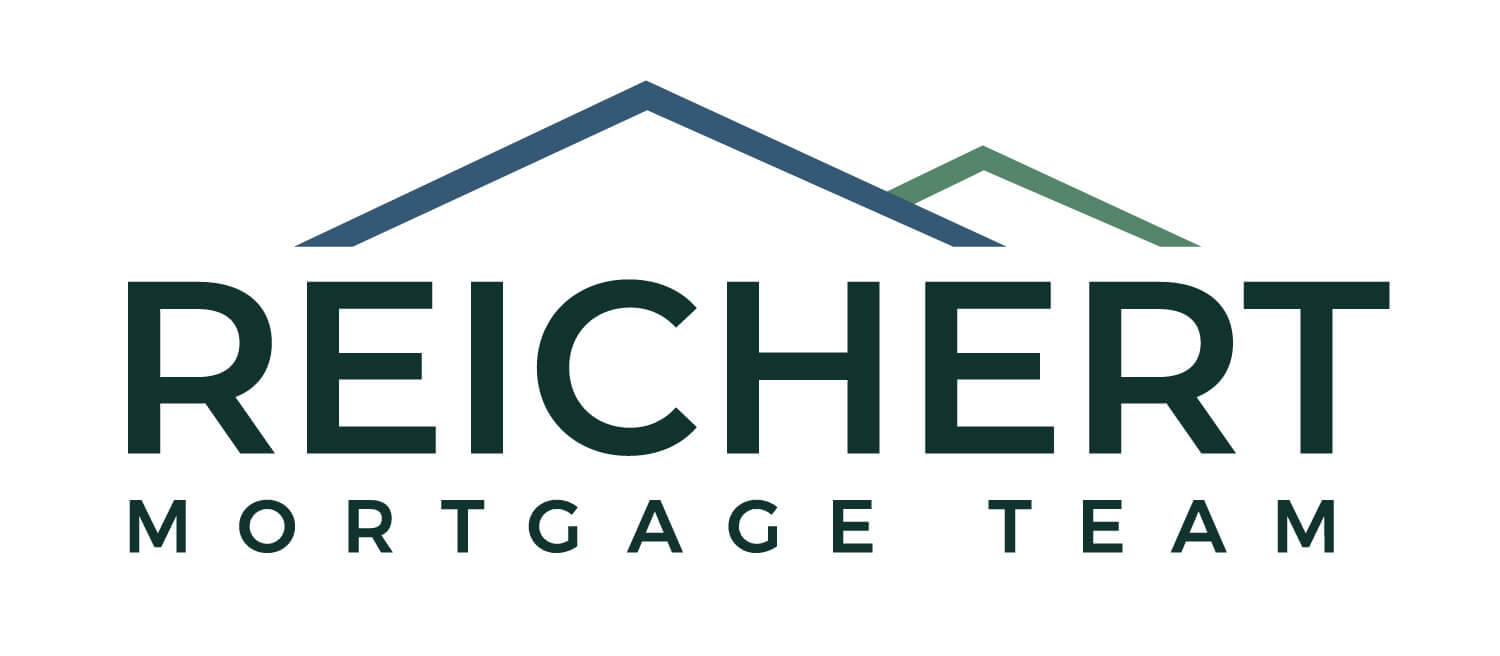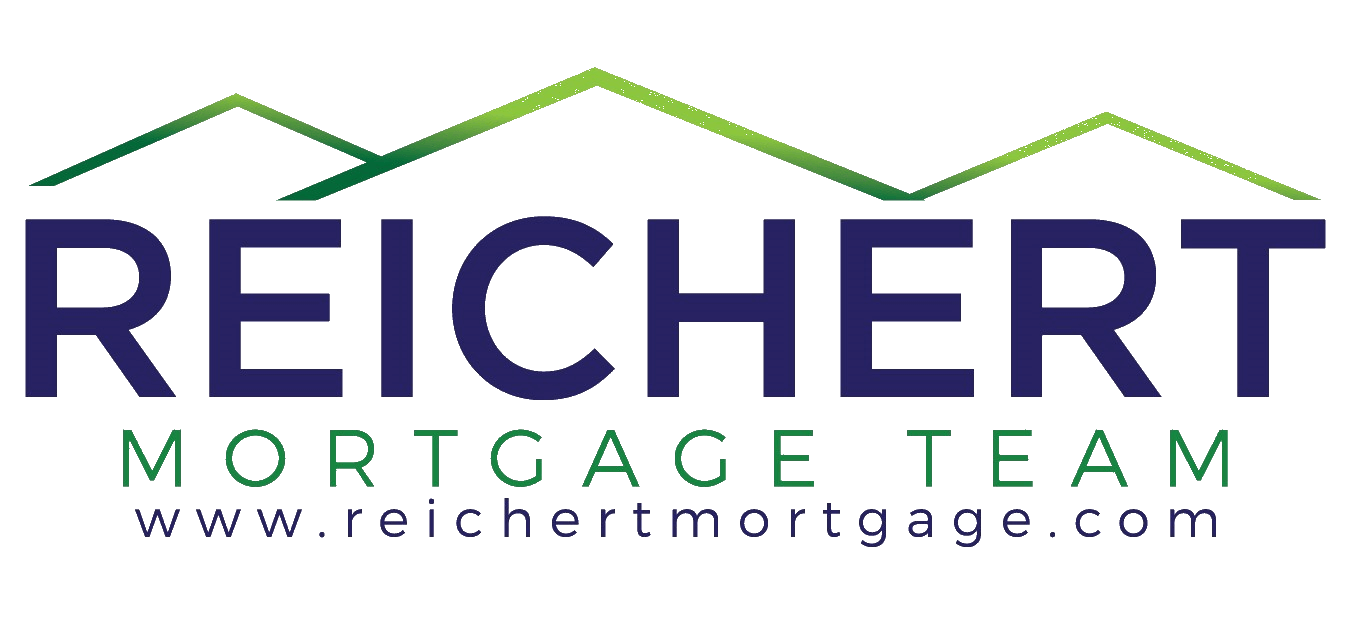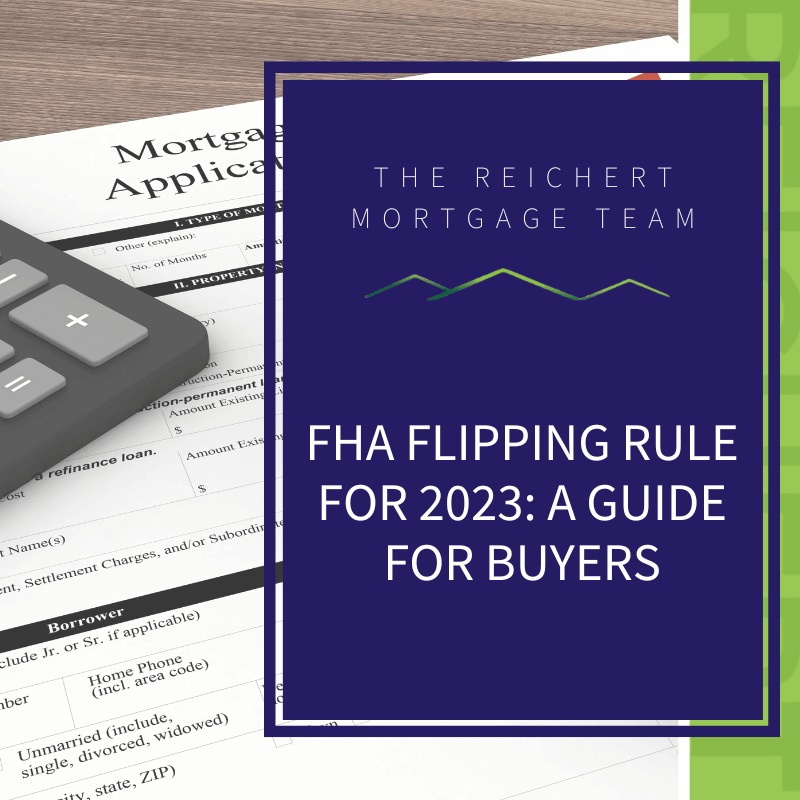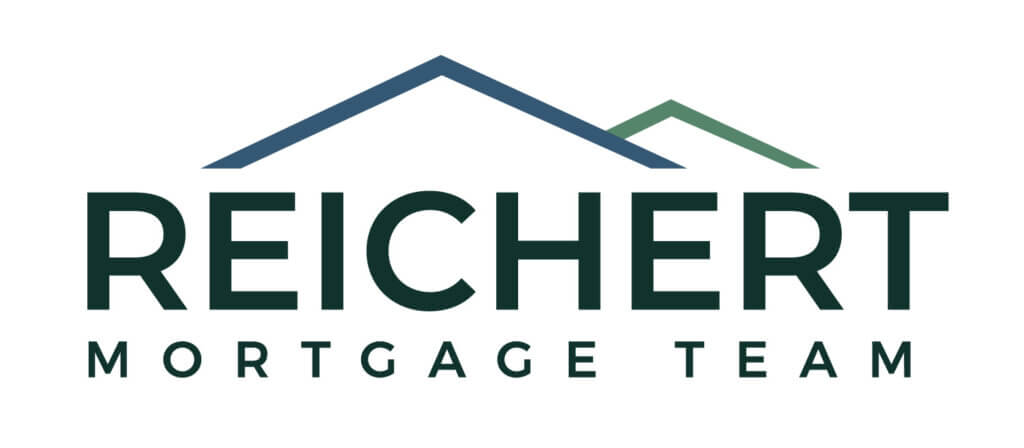What is the FHA Flipping Rule?
The FHA flipping rule is a regulation put into place in 2003 by the Federal Housing Administration to protect FHA borrowers from buying homes that have been quickly flipped and might have unseen issues or defects. The FHA flipping rule states that any FHA-insured mortgage cannot be used to purchase a home that has been flipped within 90 days of the sale. In other words, a seller must own the property for at least 90 days before it can be sold to an FHA borrower.
The FHA guidelines protect borrowers in many ways beyond the FHA flipping rule. These guidelines can be a bit more stringent than other lenders but are lifesavers for borrowers who might not otherwise be able to qualify for a mortgage. Other FHA and lender guidelines include:
- A minimum credit score of 580
- A debt-to-income ratio of no more than 56.99%
- A down payment of at least 3.5%
- An fully executed appraisal with appropriate value and condition of the home
The Home Flipper Perspective
While these guidelines were put into place to help discourage unfair inflation of housing prices through quick dishonest flips of damaged properties, the FHA flipping rule can also limit borrowers who plan on real estate flipping or property flipping using honest practices and real home improvement. These rules can make it more difficult for sellers to find a qualified buyer due to the popularity of FHA loans with first-time homebuyers and borrowers with lower credit scores. It can also reduce profit margins for flippers who may have to sell their flipped house for less than they would have if they could have sold it immediately. Overall, the FHA Flipping rule is mostly good for buyers, but a challenge for some sellers. Especially those who improve and sell homes for a living.
Flipping Rule Challenges
Despite its benefits, the FHA flipping rule is often considered controversial by some in the housing market because of its strict guidelines. It can limit the number of homes available for FHA borrowers making it more difficult for first-time homebuyers and borrowers with lower credit scores to find a home. It has also been seen as discouraging to those who flip houses for a living, making it less attractive to fix up and resell homes and decreasing the supply of good affordable housing in the process. Some use these points to argue that the rule is too restrictive and prevents people from buying homes they love that would otherwise be in their budget. Those people believe the rule should be repealed or modified to make it easier for people to buy homes with FHA loans.
On the other side of the argument, many agree that the current FHA rules protect new homeowners and those with lower credit scores from predatory lending that sets them up for failure and poor-quality homes that will quickly break the bank with endless problems and hidden defects.
The FHA flipping rule continues to be a complex issue with no end to its controversy. It is important to know the pros and cons and weigh them carefully before deciding to take out a loan.
Pros and Cons of the FHA Flipping Rule
Pros
- It ensures that homes are in good repair by protecting buyers. The FHA Flipping Rule helps to ensure the homes that are financed meet a higher standard of quality by requiring a home inspection before approval.
- It helps stabilize the housing market prices. The FHA Flipping rule makes flipping less attractive leading to a decrease in the supply of affordable housing. This can help keep home prices from rising too quickly.
- It protects buyers and borrowers from predatory lending. It requires lenders to disclose all terms of the loan before borrowers sign the paperwork, and prevents borrowers from getting into debt they cannot repay by prohibiting lenders from making loans to borrowers who are not able to afford the monthly payments due to a high debt-to-income ratio.
Cons
- It can make it more difficult for FHA buyers and borrowers to find a home. Because of the restrictions on buying flipped homes, this rule can make it more difficult for buyers and borrowers to find a home they can use the FHA loan for.
- It can increase the initial cost of homeownership. By requiring a downpayment and the added cost of inspections it can increase the initial cost of homeownership.
- It can reduce profit margins for flippers. Many flippers will end up selling for less than they would if they could have sold it immediately after finishing the flip. This can reduce potential profit margins and discourage people from investing in real estate.
Understanding Real Estate Flipping with an FHA Loan
What are the FHA flipping guidelines? Here is what you need to know when considering an FHA Loan for your real estate flipping project.
How Many FHA Loans Can I Have?
Borrowers are allowed to have up to two FHA-insured mortgages at the same time. However, there are a few restrictions. The combined mortgage of both loans cannot exceed the current FHA loan limits for the property locations. This maximum loan amount changes depending on the location of the property. Borrowers interested in a second FHA loan must also meet credit score and debt-to-income requirements of the lender and FHA.
Exceptions to the two-mortgage rule exist as well. For example, borrowers who are married may each have an individual FHA loan, even if they already have a loan together in both of their names. Additionally, borrowers buying a second home can use an FHA loan as long as the first home is being rented out or sold.
When considering taking out an FHA loan it is important to talk to a lender about your specific situation. Your qualified lender can help you determine if you qualify for an FHA loan and help you find a loan that meets your needs.
Do FHA Lenders Add Penalties For Selling Early?
No. There are no penalties for “selling early” aka selling before your loan has been completely paid. FHA loans do not have prepayment penalties so you can sell your home or refinance before paying the balance of your loan. This can be a huge advantage to borrowers who need to move or who find a lower interest rate elsewhere.
Selling a home early can cost more than you might think. You will need to sell your home for enough to pay off the mortgage in full or cover any difference if the home sells for less than the amount you owe on the loan. You may also need to pay for closing costs associated with the sale. Make sure you understand all the costs involved before you agree to sell your home.
What Is The Cost Of Your MIP And UFMIP When You Sell?
The cost of MIP (mortgage insurance premiums) and UFMIP (upfront mortgage insurance premiums), when you sell a home financed by an FHA loan, depends on a few factors: the date the loan originated, the total loan amount, and the term of the loan.
For loans originated on or after July 1, 2013, the UFMIP is 1.75% of the total loan amount and is typically financed into your loan amount. The annual MIP is 0.85% of the total loan amount for the first year, 0.75% of the total loan amount for the second year, and 0.65% of the total loan amount for each year thereafter.
For loans originated before July 1, 2013, the UFMIP is 1.75% of the loan amount and is typically paid upfront as one of your closing costs. The annual MIP is 1.25% of the loan amount for the life of the loan.
When you sell your home, you receive a refund of any unused UFMIP. You also receive a refund for any portion of the annual MIP that was paid in advance, but you will not receive any of the MIP that has been paid monthly.
For example, here is how the MIP and UFMIP costs would work for a $200,000 loan that originated after March 1st, 2023 with a term of more than 15 years and a loan to value ratio of ≤90%:
UFMIP: $3,500 (1.75% of the total $200,000)
Annual MIP: $1,000 for 11 years (50 basis points of 200,000)
When selling your home your MIP and UFMIP refund will depend on the number of years you have had your loan. It is important to know that MIP and UFMIP costs vary depending on the lender and terms of the loan. Always speak with your lender to get an exact quote for your situation and loan.
Do I Need To Have The Money To Put 20% Down?
No. One of the greatest benefits for first-time homebuyers and those with lower credit scores is the low downpayment amount for those using an FHA loan. FHA loans allow borrowers to put down as little as 3.5% making this a great option for borrowers who have not been able to save up a large down payment.
Make sure you talk to your lender about any additional costs and qualifications for using an FHA Loan.
Do I Need A Qualified Home Inspection And Appraisal?
The Federal Housing Administration requires an appraisal for all FHA loans but only reverse mortgages require an inspection. This inspection ensures that the property is safe and habitable and the appraisal determines the value of the property. These requirements were put into place to protect the buyer from buying a home with hidden defects or spending too much on a property that is not worth the asking price.
Make sure you use an FHA-approved inspector for your reverse mortgage home inspection and that your appraisal is conducted by an FHA-approved appraiser to avoid the cost of additional inspections or appraisals. Your inspector will look for major defects in the property such as structural damage, mold, or pests. If any major defects are found the lender may require repairs to be made by the seller before the loan can be approved.
Why Do I Have To Make Necessary Repairs Before Selling?
The FHA requires that homes purchased with an FHA loan meet a set of minimum property standards. Homes that do not meet that standard will have to be repaired to be eligible for a buyer using an FHA loan. These standards cover a wide range of areas including roof, electrical systems, plumbing, heating and cooling systems, and foundation.
How Does The FHA Flipping Rule Affect Your Property Flipping Plans?
The FHA Flipping rules can affect your real estate flipping plans in many ways. FHA loans prohibit the purchase of a home that has been flipped within 90 days of sale which can make it more difficult to find a qualified buyer for your flipped home. Selling is also affected when you flip with an FHA loan because you may face reduced profit margins from expenses incurred during the required 90 to 180-day wait between the purchase and sale of your flipped home.
The 70 Percent Rule For House Flipping
The 70-percent rule is a guideline many flippers use to determine how much they should pay for a property. This rule recommends flippers pay no more than 70% of the after-repair value (ARV) of a property minus the cost of repairs. The ARV is the estimated value of the property after it has been renovated for personal use or in a real estate flip. If a property has an ARV of $100,000 and needs $20,000 in repairs, the 70 percent rule would suggest that the borrower should not pay more than $56,000 for the property.
The 70% rule is a great starting point for house flippers, but it is important to remember that it is just a guideline meant to help you avoid overpaying for a property so you can make a profit on your flip.
The 90-Day Flip Rule
The 90-day flip rule is a federal regulation that prohibits the FHA from insuring mortgages on homes that have been flipped within 90 days of the previous sale. This rule was put into place to protect FHA borrowers from buying homes that have been quickly flipped with poor workmanship and deceptive “upgrades” covering, rather than fixing, known issues and defects. The 90-day rule gives buyers time to research the property, ask questions about the previous sale, get a home inspection, and have the seller make any necessary repairs. This protects the buyer from financial loss.
The 180-Day Flip Rule
While it is easier to get FHA loan approval once you are beyond the 91-day mark, there is another flip rule for properties owned between 91-180 days. If the home is for sale between 91-180 days after it was last sold, and the purchase price is the same or higher than what the seller paid, a second inspection and appraisal is required to ensure the property has been properly repaired and is fairly priced based on the quality of the work done. This second inspection and appraisal is required before a buyer can purchase the home with an FHA loan. This second appraisal has to meet the following additional FHA guidelines:
- It must be done with a different appraiser, licensed and certified by the FHA. The same licensed and certified appraiser can not be used from the first appraisal.
- The second appraisal typically costs between $300-$500, and will not be paid for by the buyer.
- The lender must be given a 12-month chain of title to enable the lender to trace the ownership of the property back for at least 12 months. If there are any gaps in the chain of title the lender may not be able to approve the loan.
- The lower appraisal value will be used if the second appraisal value is more than 5% higher than the first.
- In order to approve a higher appraisal and loan amount, there must be documentation that supports the increased property value.
The FHA 12-Month Rule
The 12-month rule protects the FHA from losses by ensuring borrowers have a good credit history and a record of successfully repaying loans. This regulation prohibits borrowers from using an FHA loan to purchase a home if they have had a foreclosure, short sale, or bankruptcy within the past 12 months. This rule was put into place to ensure that borrowers have a history of making on-time payments and can afford monthly mortgage payments. Borrowers who have missed payments in the past 12 months may still be eligible for an FHA loan, but the lender may require them to provide additional documentation or pay a higher interest rate.
There are a few exceptions to the FHA 12-month rule. The rule does not apply to borrowers who suffered a foreclosure, short sale, or bankruptcy caused by circumstances beyond their control such as natural disasters, medical emergencies, or job loss. It also does not affect borrowers who have had a foreclosure, short sale, or bankruptcy that was discharged more than 12 months ago. Borrowers who are unsure if they meet the FHA 12-month rule should talk to a qualified lender for more information.
FHA Flipping Rule Exceptions
There are exceptions to the FHA flipping rule. The rule does not apply to homes that have been:
Newly built: A new construction home can be financed with an FHA loan even if it has not been owned for 90 days. New construction homes are typically in good condition and do not require any major repairs so the FHA does not have the same concerns as they would with older properties.
Owned by a Nonprofit Organization: If a nonprofit organization flips a property, it can sell that property with an FHA loan even if it is being resold within 90 days. Nonprofit organizations are typically more careful about the condition of the properties they flip and less likely to sell homes with hidden defects.
Owned by the Government: Homes owned by the government are exempt from the FHA flipping rule. Most government-owned homes are sold due to relocation and have been well maintained.
Inherited: The FHA understands that many inherited properties need to be sold quickly and do not restrict the sale of inherited properties under the FHA flipping rule.
Sold due to Relocation: Job relocations can be sudden and unexpected so they are not restricted by the flipping rule.
A PDMDA property: If you buy a home in a Presidentially Declared Major Disaster Area (PDMDA) you can finance it with an FHA loan even if it has been resold within 90 days.
We highly recommend you get an appraisal and home inspection before buying a home, even if the home fits into an FHA Flipping rule exception category.
FHA Self-Sufficiency Test
The FHA self-sufficiency test is required for borrowers who want to purchase a three- or four-unit property with an FHA loan. This test ensures that the property is capable of generating enough income to cover mortgage payments and other expenses such as taxes and insurance.
In order to pass the FHA self-sufficiency test, the net rental income from the property must be greater or equal to the PITI (Principal, Interest, Taxes, Insurance) for the property. If the net rental income is less than the PITI the property can not qualify for an FHA loan.
How To Apply For FHA Loans
The first step to applying for an FHA loan is making sure you meet the minimum qualifications. Many things can disqualify you from an FHA loan. Improving your debt-to-income ratio and credit score are both important to receiving an FHA loan approval. Make sure you have the minimum down payment required by your lender and that the purchase price for the property you want to buy does not exceed the current FHA loan limits for your area.
Once you know you qualify for an FHA loan your next step is finding a qualified lender that offers FHA loans. This lender will collect information from you to ensure you qualify for an FHA loan and can help you order an appraisal of the property you wish to buy. Here’s how to get started:
- Gather the documents needed to apply for an FHA loan:
- Proof of Income
- Proof of Assets including funds for your down payment
- Identity/ citizenship documents (driver’s license, green card, etc.)
- Homeownership documents (current mortgage statements, HOA statements, proof of homeowner’s insurance, e.g.)
- Other miscellaneous items that pertain to the unique financing situation
- Apply for a loan. Once you have your documentation you can apply for an FHA loan with your lender.
- Get approved for the loan. Your lender will review your application, property appraisal, and home inspection and decide to approve or deny your loan.
Always talk to a lender to make sure you qualify for an FHA loan. They will help you assess your eligibility and determine if an FHA loan is the right option for you.
What Are The Current FHA Loan Limits?
The FHA loan limits are determined by the area you are buying a home. You can find the current maximum mortgage limits for your area by contacting a local FHA loan lender or visiting the FHA website to do an FHA mortgage limit search.
FHA Loan Application
Ready to apply for an FHA loan? Reichert Mortgage can help you find out how much you qualify for. Click here to apply now.














